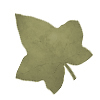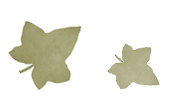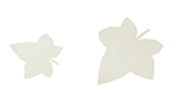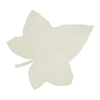


|
The
common cold - an infection of the upper respiratory
tract - is something that most folk suffer from
at least once in their lifetime (if not yearly!).
It can be spread from coughing and sneezing, or
by hand to hand contact - and seeing as the virus
can live for several hours on surfaces (such as
doorknobs) it is advisable to wash your hands often
during 'the cold season.' Garlic is one of Natures wonder-foods - it contains allicin
which is one
of the plant kingdom's most potent broad-sprectrum
antibiotics. Garlic is quickly absorbed into the bloodstream and is
particularly effective at remedying bronchitis and
respiratory ailments as one of the ways it works
its way out of the body is via the lungs, treating
them as it does so. A fun experiment which illustrates
this action : rub raw garlic onto the soles of someone's
feet, wait a few minutes and then smell their breath! For centuries the American Indians of the Great Plains have used Echinacea to treat colds, flu and many other ailments. Echinacea strengthens the immune system by increasing levels of properdin, a chemical in the body which activates the part of the immune system responsible for increasing the defense mechanism. Echinacea is generally considered best used as soon as you feel a cold coming on, rather than relying on it all year round. The root can be chewed or made into a decoction, or the flowers made into a tea. Lemon and honey are traditional remedies for colds and flu. Neat Lemon juice makes a wonderful sore throat gargle, and you can be safely swallowed after gargling to benefit you further. At the first sign of a cold or sore throat I get a pan of lemons and oranges on the stove : Whitewolf's 'Hot Lemon, Orange & Honey Miracle Drink' - Cold Buster! 1
or 2 Oranges Squeeze
the juice from the Oranges and Lemons and place
in a saucepan. Cut up the rinds and remaining fruit
flesh and add to the saucepan. Add up to half a
cup of water and bring to the boil. Turn the heat
down to simmer and add the Honey, stirring well.
Bruise the Cloves and add them to the mix, along
with the Cinnamon stick. Simmer for about 10 minutes,
stirring [and squishing the fruit remains/rinds]
occasionally. Remove the fruit rinds, cloves and
cinnamon stick and pour the liquid into a mug. Don't
strain out the small fleshy pulpy bits - leave these
in and drink them up too! Ginger,
cinnamon and cloves all
have heating properties and stimulate sweating -
try adding to hot herbal or fruit drinks or fruit
crumbles and deserts during the winter seasons to
keep the cold out. Baked Apple stuffed with nuts, sultanas, raisins, honey and
spiced with ginger and cinnamon, a couple of cloves
(stuck into the outer skin of the apple) and drizzled
with more honey and a little brown sugar would make
a delicious, healing dessert. Sage makes an extremely effective herbal gargle for sore
throats - make a strong infusion of dried sage leaves,
as if you were making a strong cup of herbal tea.
(A teaspoon of honey can be added if desired). Infuse
for about 5 minutes, strain and allow to cool to
a comfortable temperature. Gargle and then spit
or swallow - if you are pregnant, breastfeeding
or suffer from epilepsy or high blood pressure either
avoid using sage or be sure to spit, not swallow
after gargling. Thyme has effective antiseptic, antimicrobial, bactericidal, and fungicidal properties and it has long been believed that thyme helps to revive and strengthen body and mind, and is known to enhance the immune system and help the body fight infection. An infusion of thyme can be gargled to soothe a sore throat and fight throat infections, or drunk as a warm herbal tea to help relieve general cold symptoms, including persistent coughs. A strong infusion can also be added to bath water, not only will it help fight the cold and boost your immune system, it will also help soothe aches and pains associated with colds and flu. For heavy chest infections add a handful of dried thyme and nettle to a large bowl, pour on freshly boiled water and draping a towel over your head and around the edges of the bowl sit for 5 - 10 minutes breathing in the vapours. Do not start with your face too close to the surface of the water or the steam may burn you! (If you have severe breathing or lung-related problems it may be advisable to discuss this remedy with your doctor / health-care professional before use). Elderberries
lend themselves perfectly to syrups for coughs and
sore throats and have a long history of use in popular
folk remedies They also make a delicious addition
to fruit pies and desserts - try a combination of
elderberries, blackberries, black cherries, apples
and other seasonal fruits. Add some ginger, cinnamon
and cloves, and sweeten with warmed honey. The elderberry
has 2 compounds that are active against the flu
virus, and also helps prevent the virus from invading
the respiratory tract cells. Lavender is a valuable treatment for colds, throat, chest and ear infections and is an effective antiviral agent - try a steam inhalation with a few drops of the essential oil or a handful of lavender flowers to soothe a sore throat and ease chest infections. To remedy sinus pains, earache, or sore throats try massaging a little Lavender oil below and behind the ear, or along sinus pains, or around the throat / neck roughly over the gland area. A strong infusion of lavender flowers (or diluted essential oil) can be added to bath water for a relaxing bath before bedtime to ease aches and pains and ensure a sound sleep. A chesty cough may benefit from a chest and upper back massage using a a couple of drops of Eucalyptus or Benzoin diluted in a suitable carrier oil (such as sweet almond oil). These oils could also be added to an oil burner and placed in the sick room. Other useful oils for a sick-room oil burner or room-mister inlude Lavender (soothing and antibacterial); Rosemary (antibacterial); Tea-Tree (antiviral, antibacterial) and Marjoram or a citrus oil like Grapefruit or Bergamot will help lift the spirits. Any of these could also be diluted in milk or a carrier oil and added to warm bath water (up to a maximum of 6 drops for an adult bath - less if using Eucalyptus). Eucalyptus oil can also be added (2 - 3 drops) to hot water and used as a steam inhalant to remedy catarrh and sinus problems. I like to burn herbs in my home to help cleanse the air and prevent infection, especially during the cold and flu season or when school terms start. The Ancient Greeks used thyme to fumigate against infectious illness, and it wasn't that long ago that French hospitals were still burning herbs such as rosemary and juniper to fumigate wards and prevent infections spreading. Lavender, thyme and sage also make ideal fumigating herbs / incense. Rosemary is my personal favourite, quite often blended with sage. These are but a few of the natural remedies you can use to treat a cold or keep one at bay - and you should also remember to wrap up warm and drink plenty of fluids (herbal teas, fruit and vegetable juices and water). If symptoms persist, worsen, or cause you concern seek medical advice immediately. Remember that cold and flu in the very young and old or weak, if not treated, can result in pneumonia. The herbal remedies mentioned in this article are not intended to replace professional advice. Any medication you are on should also be taken into consideration - always check with your healthcare professional if you are on prescription drugs before taking herbal remedies. In the case of serious wounds, or excessive blood loss, professional medical attention should be sought immediately. |
|

Gaia's Garden Library
Non Fiction Section : Gaia's Garden Herblore | Susun S. Weed Articles | Articles and Musings
Fiction Section : Short Stories & Prose| As Told
By Cat | Public Domain Texts| Poetry
Shop | Library | Gallery | Forum | Contact | Links








